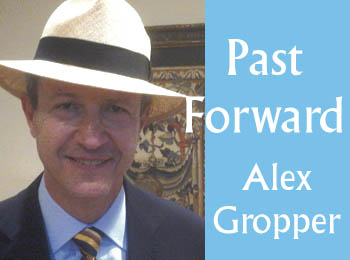Recently, the Olive Oil Project that I initiated four years ago was launched with a wildly successful gala reception for 500 people at the Royal Ontario Museum in Toronto. It was hosted by the consuls general of Israel, Greece, Italy and France. The evening was capped by a wonderful tasting, where we all basked in the glow of friendship and fraternity that the evening had brought about. It was a moment to be treasured.
The next day consisted of a scholarly conference organized and hosted at St. Michael’s College at the University of Toronto by its principal, Prof. Domenico Pietropaolo. The week before, Pietropaolo had organized a moving presentation on the Holocaust in Italy as part of Holocaust Education Week. It highlighted St. Mike’s commitment to, and friendship and solidarity with, our community.
I was expecting the usual pedantic, academic presentations on olive oil from the conference, which Pietropaolo had so ably put together. But the papers presented covered a broad range of topics, from the 20th-century German poet, Gottfried Benn’s fascination with Italy and the olive, to an examination of the olive oil industry at the ancient site of Tel Ekron, located on the coastal plain of Israel between Jerusalem and the Mediterranean.
Ekron was the first major industrial olive oil complex so far discovered in the Mediterranean. The complex dated to the 7th century BCE, when the mighty Assyrian Empire held sway over the eastern Mediterranean coast. (It was the Assyrians who destroyed the northern kingdom of Israel in 722/721 BCE and deported some of its inhabitants, giving rise to the legend of the Ten Lost Tribes).
But amid all of these fascinating, but mostly esoteric, talks there was a hidden time bomb. The title of the last paper briefly got my antennae up. It was called “A Comparison of the Olive Oil Industries in Tuscany and Palestine.” The word Palestine should have been a warning, but I attributed no malevolent motives to its use. However, the talk itself turned out to be nothing more than pro-Palestinian propaganda masking itself in an academic guise.
As chair of that session, I was confronted with the choice of letting the speaker, a “reputable” academic, continue talking, or stopping her and thus denying her “academic freedom.” The day of the talk was Remembrance Day, and out of respect for the occasion, when we honoured those who had died defending freedom of speech, I decided to let her speak, even though I disagreed with what she was saying.
Dan Bahat, the well-known Israeli archeologist, who is a visiting professor at St. Mike’s, sat in the audience. He and Judith Cohen of York University stood up and vociferously challenged the speaker on her half truths and innuendos.
But it still leaves the question as to how far one has the right to exercise academic freedom. The conference brought home the fact that even in the spirit of co-operation that it was designed to foster, one has to be ever mindful of the sinister and devious evolution of both antisemitism and anti-Zionism.
